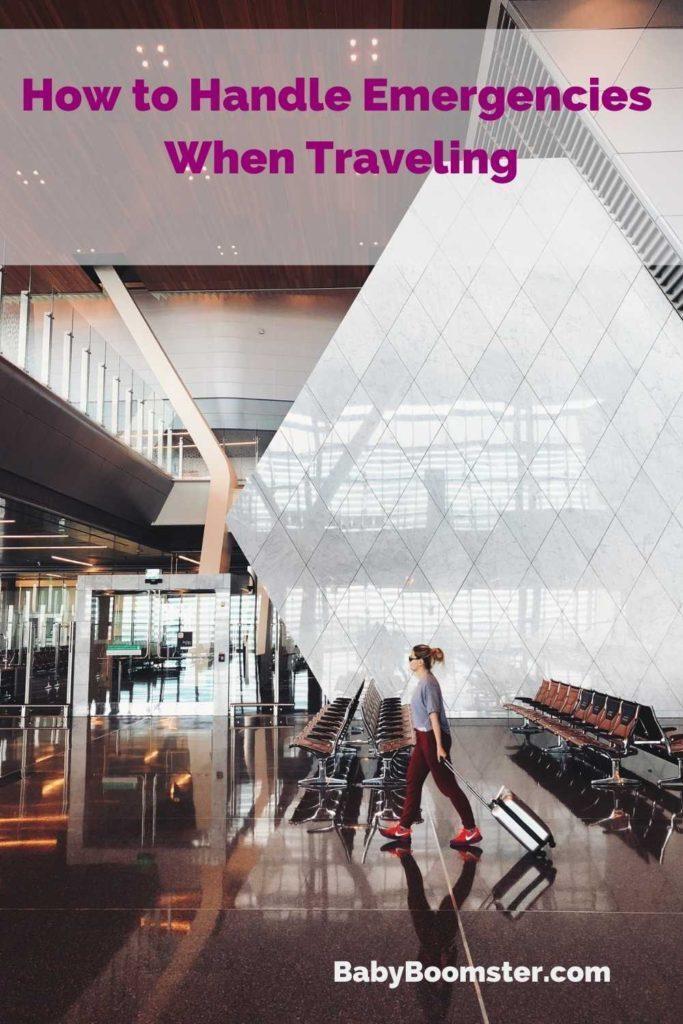Traveling can be a great escape from everyday life. Whether you’re road-tripping to Santa Barbara or flying to San Miguel de Allende, traveling allows you to clock out from work and prioritize yourself and your loved ones (also, is there a better feeling than setting all emails to send an “out of office” auto-response?).
However, before you settle into vacation/vagabond mode, you should ensure that you are ready to handle an emergency should one occur while you’re away from home.
Remain Vigilant
Constantly improved vaccinations and treatments mean it is possible to travel safely. Make sure to get what is needed medically for the destination you are going to especially if there is a disease outbreak.
Plan Ahead
Adequate planning can make a huge difference during an emergency. Here are a few tips to ensure that you keep yourself and your loved ones as safe as possible while traveling.
Communicate Conditions
If you’re traveling with a group of people, it is a good idea to share details of any pre-existing conditions you have with them — particularly if your condition is potentially life-threatening. By telling the rest of the party about your condition, you can ensure that they will know what to do if you fall ill.
Search for Providers
If you’re traveling out of state, it’s a good idea to look up your nearest urgent care center. Urgent care centers hold medical technology like X-Rays, hematology equipment, hyfrecators, and IVs. This means you can get the care you need, even if you’re away from home.
If your emergency goes beyond the capabilities of an urgent care provider, you should visit the ER instead. You can search online for hospitals before you travel and can utilize hospital finders online that will point you toward the closest hospital and ER services.
Organize Medication
A clear approach to medication is vital if you want to stay healthy. If you, or a member of your party, falls ill you must be able to find the right medication quickly and without stress. Here are a few tips to manage your medication when traveling:
- Bring Enough: you should always bring extra medication with you. The amount you bring is dependent upon the length of time you’re away from home, but a good rule of thumb is to bring two weeks extra.
- When Flying: keep any medication in your carry-on (provided it will clear security checks). You should also keep all medications in their original, labeled containers to ensure they aren’t confiscated.
- Store Correctly: some medications will be damaged if they are exposed to the sun or are overheated. Do not keep medication in glove boxes, and find out if your medication is “photosensitive” before you travel.
- Communicate: tell at least one person where you keep your medication — particularly life-saving medications like EpiPens.
Organizing your medication before you travel can ensure you will give you peace of mind and might just save your life.
Finances + Emergency Funds
No one likes thinking about finances when on vacation. However, emergencies rarely occur when you want them to. So, before you travel, you should plan ahead to ensure that you can cover emergency medical expenses. You should also know what kind of emergencies won’t be covered by insurance and should plan by building an emergency fund that can cover these costs.
De-Stress
De-stressing is easier said than done — particularly when traveling. Research conducted by the American Psychological Association found that 67% of adults have experienced significant stress in the last year and a half, and experts predict that our high levels of stress will cause “serious health and social consequences for years to come”.
Traveling can trigger stress-related conditions but also reduce stress levels. Studies find that short vacations may help those who experience stress and pressure at work and researchers recommend incorporating low-intensity physical activity like walking, light yoga, or swimming during your vacation.
Before You Jet Out
You shouldn’t obsess over the possibility of an emergency — overthinking won’t help and will just cause you more stress. Instead, you can take control of the situation by planning ahead. So, before you travel, ensure your medication is organized, share details of acute medical conditions with the rest of the travel party, and plan relaxing physical activities like yoga and swimming.




Leave a comment and tell us what you think